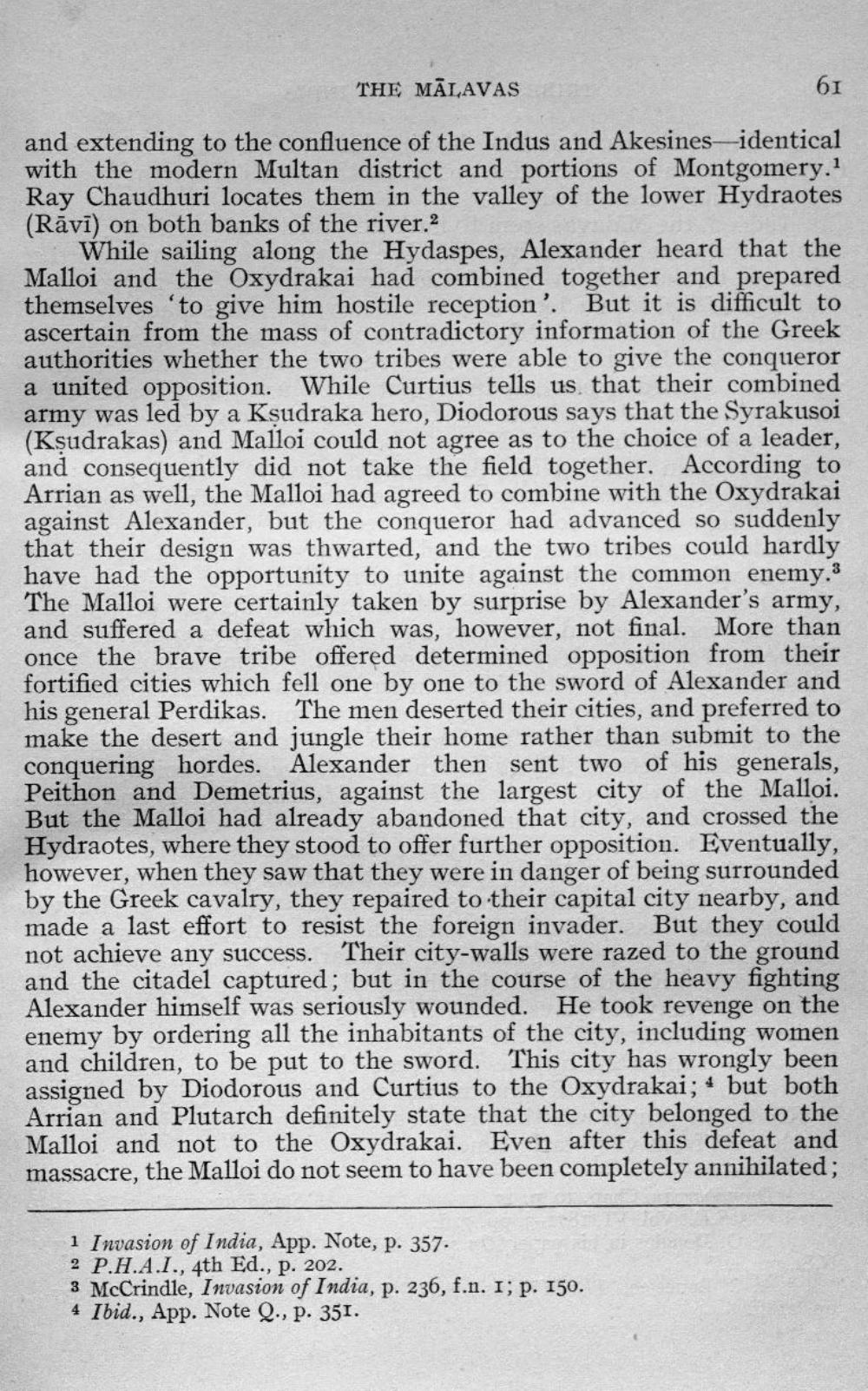________________
THE MĀLAVAS
61
and extending to the confluence of the Indus and Akesines-identical with the modern Multan district and portions of Montgomery.1 Ray Chaudhuri locates them in the valley of the lower Hydraotes (Rāvī) on both banks of the river.2
• While sailing along the Hydaspes, Alexander heard that the Malloi and the Oxydrakai had combined together and prepared themselves to give him hostile reception'. But it is difficult to ascertain from the mass of contradictory information of the Greek authorities whether the two tribes were able to give the conqueror a united opposition. While Curtius tells us that their combined army was led by a Ksudraka hero, Diodorous says that the Syrakusoi (Kșudrakas) and Malloi could not agree as to the choice of a leader, and consequently did not take the field together. According to Arrian as well, the Malloi had agreed to combine with the Oxydrakai against Alexander, but the conqueror had advanced so suddenly that their design was thwarted, and the two tribes could hardly have had the opportunity to unite against the common enemy.3 The Malloi were certainly taken by surprise by Alexander's army, and suffered a defeat which was, however, not final. More than once the brave tribe offered determined opposition from their fortified cities which fell one by one to the sword of Alexander and his general Perdikas. The men deserted their cities, and preferred to make the desert and jungle their home rather than submit to the conquering hordes. Alexander then sent two of his generals, Peithon and Demetrius, against the largest city of the Malloi. But the Malloi had already abandoned that city, and crossed the Hydraotes, where they stood to offer further opposition. Eventually, however, when they saw that they were in danger of being surrounded by the Greek cavalry, they repaired to their capital city nearby, and made a last effort to resist the foreign invader. But they could not achieve any success. Their city-walls were razed to the ground and the citadel captured; but in the course of the heavy fighting Alexander himself was seriously wounded. He took r
n the enemy by ordering all the inhabitants of the city, including women and children, to be put to the sword. This city has wrongly been assigned by Diodorous and Curtius to the Oxydrakai; - but both Arrian and Plutarch definitely state that the city belonged to the Malloi and not to the Oxydrakai. Even after this defeat and massacre, the Malloi do not seem to have been completely annihilated;
OL
1 Invasion of India, App. Note, p. 357. 2 P.H.A.I., 4th Ed., p. 202. 3 McCrindle, Invasion of India, p. 236, f.n. 1, p. 150. 4 Ibid., App. Note Q., p. 351.




